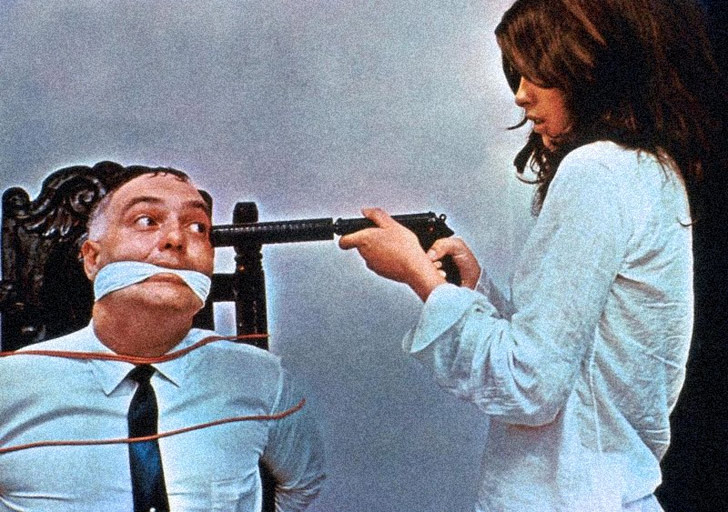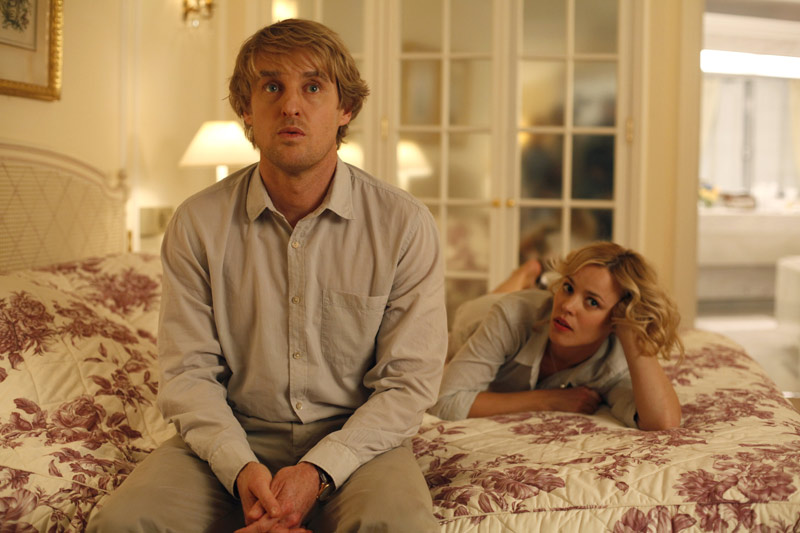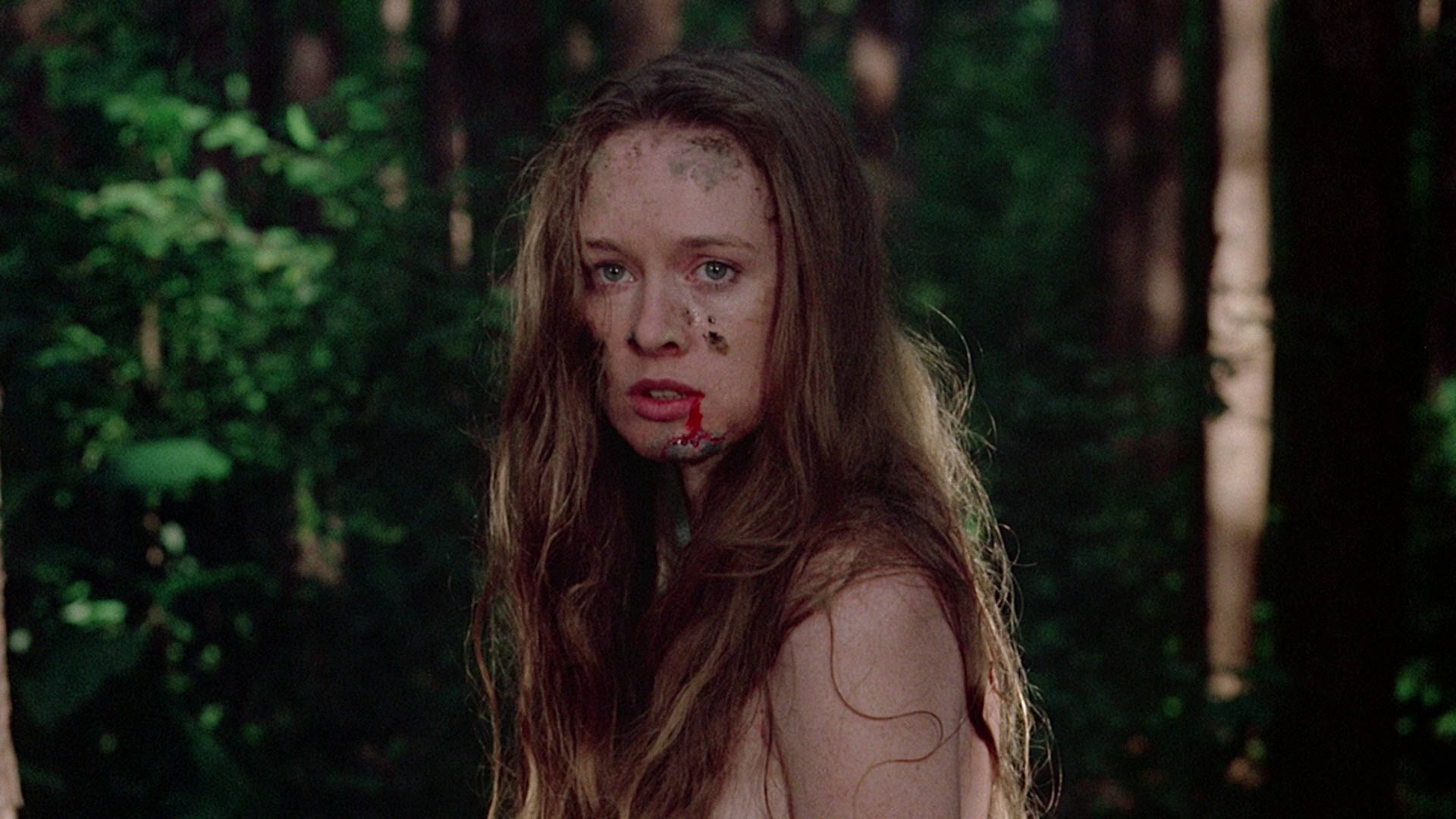
Rote Sonne
Women are absolutely fabulous and also out to get you in Rote Sonne (Red Sun, an artifact of Munich, circa 1969, that puts an alluring, unnerving, yet weirdly dispassionate spin on social unrest. Shot at a time in German history when student protests and leftist communes were subverting the longstanding post-World War II status quo, Rudolf Thome’s film has a go at the country’s nascent feminist movement by taking as its subject a women’s commune populated by man-eaters. There are four of these succubi, and they’re submissive enough for five days of courtship and good times. But woe be to the who shows up for a sixth day with love on his mind and ends up with a bullet in his brain.
Get Rote Sonne on Blu-ray pr DVD from Amazon.comAnd woe, perhaps, to protagonist Thomas (Marquard Bohm) who in the film’s opening scenes hitchhikes his way into Munchen and finds an old flame, Peggy (Uschi Obermaier), tending bar at a nightclub downtown. Back at her flat, he meets roommates Sylvie, Isolde, and Christine, who behave as if they share a secret or know a story they’re not telling. By the time Thomas starts to catch on, he’s already living on borrowed time, with way-cool but clearly lovesick Peggy resisting the entreaties of the other women to stick to established routine and snuff the bum already.
Though the subject matter is improbably lurid, Thome eschews sensationalism. The film is formally unperturbed, observing events with a clinical detachment that almost seems to be at odds with the script, which could be staged as a conventionally sexy thriller. That’s not to say it lacks showmanship — Thome said later that he found funding for the film on the condition that it star Obermaier, whose presence is a casting coup. Obermaier was at ground zero of the swelling left-wing movement in Germany, of which she and Rainer Langhans had become celebrity figureheads. Obermaier’s pouty but potently erotic presence (she’s said to have easily seduced Keith Richards and Jimi Hendrix, among others, and the film gives you an idea why) makes Thomas’s devotion to her at least understandable, though unmoving as drama. This impenetrable relationship is at the awkward the center of the film.
Formally, Thome’s direction owes a debt to Godard, especially in his unfussy head-and-shoulders shots of beautiful women, which he holds for long moments as they talk past the camera. But it’s hard to tell if Thome is a Marxist — or, more to the point, a feminist. Philosophically, Rote Sonne is in line with Werner Herzog’s Even Dwarfs Started Small, released in the same year (but after Rote Sonne’s completion). Herzog’s film, with its burlesque of the German student movement of 1968, seems skeptical of the very idea of radical protest and politics. Likewise, Thome offers a threadbare parody of left-wing terrorism. Peggy and friends’ status as serial killers is pointedly unpremeditated. We’re told one of them became angry at an unfaithful boyfriend and shoved him off a balcony. They got their stories straight and fooled the cops, which apparently raised the question: why stop with just one philanderer? But at one point these women scorned — having heretofore held no apparent beef against dudes they’re not fucking and having evinced no political thought process beyond a mild “men are pigs” sentiment — build and plant a bomb. “They want to do it for the publicity,” Isolde says, disapprovingly. Well, wait a minute. Publicity for what? These excitable feminist caricatures seem no more capable of catalyzing change than Herzog’s little people.
The femme-fatale coterie at least looks terrific, and there are touches of weirdness elsewhere in the film that tickle the fancy. There’s a groovy dance scene for the ages, all miniskirts and prog rock (embedded above), and a doomed scribe who deadpans, speaking of his latest sexy novel, “Experts believe it to be my best.” I like it when Thomas calmly locks himself in the bathroom to make sure he survives the night after a near-miss group-sex encounter gets the ladies a little too frisky. At one point a Volkswagen is driven partway into a lake for no good reason. And the film’s climactic gunfight, a little bit Tokyo Drifter, a little bit Serge Gainsbourg’s “Bonnie and Clyde,” is so damned lackadaisical that it might as well be a fashion shoot. For me, the main problem is the lack of a compelling point of view. The unflappable, uninteresting Thomas, rather than the smoldering, conflicted Peggy, is clearly the director’s surrogate, and his reduction of radical feminists to mere dilettantes feels condescending, if not downright reactionary. In the end, it’s most valuable — and makes the most sense — as a time capsule.
Posted by on August 17, 2024 6:52 PMGet Rote Sonne on Blu-ray pr DVD from Amazon.com


